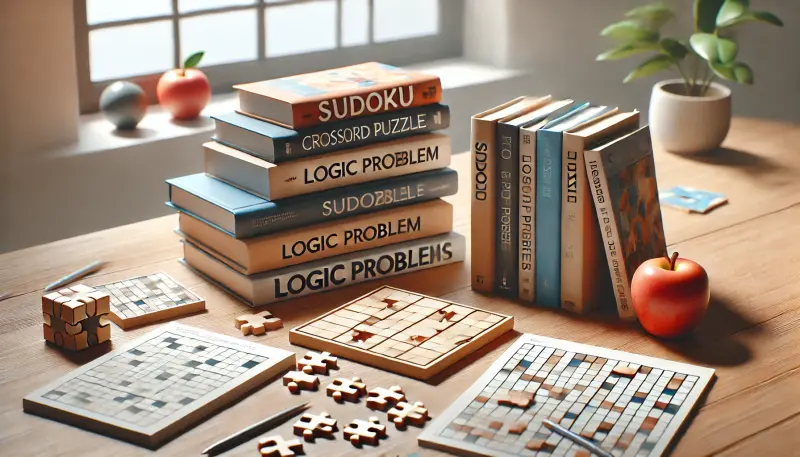How to Learn Through Solving Puzzles and Logic Problems: Methods for Enhancing Thinking Skills
Introduction
In today’s fast-paced world, the ability to think critically and solve problems efficiently is more important than ever. Engaging in puzzles and logic problems can significantly enhance cognitive skills, making learning not only effective but also enjoyable. This article explores various methods of learning through solving puzzles, examining their benefits and providing practical tips for incorporating them into your daily routine.
The Importance of Critical Thinking
1. Definition of Critical Thinking
Critical thinking involves analyzing information, evaluating different perspectives, and arriving at reasoned conclusions. It is an essential skill that helps individuals make informed decisions, solve complex problems, and navigate various situations in life.
2. The Role of Puzzles in Developing Critical Thinking
Puzzles and logic problems encourage individuals to think critically by presenting challenges that require analysis and reasoning. They stimulate the mind, promote creativity, and help improve mental agility, which is vital in academic and professional settings.
Benefits of Solving Puzzles
1. Enhancing Cognitive Skills
Solving puzzles is an excellent way to enhance cognitive skills such as memory, attention, and processing speed. When engaging with puzzles, the brain is actively involved in recognizing patterns, making connections, and remembering information.
2. Improving Problem-Solving Abilities
Puzzles often require innovative thinking and a systematic approach to reach a solution. This process fosters problem-solving abilities, allowing individuals to apply similar strategies in real-life situations, whether in academics or personal challenges.
3. Boosting Creativity
Puzzles can also stimulate creativity by encouraging individuals to think outside the box. When faced with a challenging problem, one must often explore unconventional solutions, thereby enhancing creative thinking skills.
4. Building Persistence and Patience
Working through challenging puzzles requires perseverance and patience. Developing these traits can translate into a greater willingness to tackle difficult tasks in academic and professional life.
Types of Puzzles and Logic Problems
1. Crossword Puzzles
Crossword puzzles are a classic example of a word game that enhances vocabulary and general knowledge. They require individuals to think laterally and make connections between words and clues.
2. Sudoku
Sudoku is a number-placement puzzle that promotes logical reasoning and critical thinking. It challenges players to analyze possibilities and deduce the correct placement of numbers.
3. Riddles
Riddles engage lateral thinking and often require an unexpected twist in reasoning. Solving riddles can enhance creative problem-solving abilities and encourage out-of-the-box thinking.
4. Logic Grid Puzzles
Logic grid puzzles present a series of clues that must be analyzed to draw logical conclusions. They help develop analytical skills and improve deductive reasoning.
5. Jigsaw Puzzles
Jigsaw puzzles promote spatial awareness and cognitive skills as individuals piece together various parts to form a complete picture. They also enhance memory and focus.
Methods for Incorporating Puzzles into Learning
1. Daily Puzzle Routine
Incorporating puzzles into your daily routine can enhance cognitive skills significantly. Setting aside time each day to engage with a puzzle can help keep your mind sharp and agile.
2. Group Puzzle Activities
Working on puzzles in groups can foster teamwork and collaboration. Discussing strategies and solutions with peers encourages a deeper understanding of problem-solving techniques.
3. Online Puzzle Platforms
Utilizing online platforms that offer a variety of puzzles can provide easy access to new challenges. Many websites and apps offer daily puzzles, which can be a fun way to practice critical thinking skills.
4. Thematic Puzzles Related to Subjects
Using puzzles that relate to specific subjects can enhance learning. For example, math-related puzzles can reinforce concepts learned in class, while word puzzles can improve language skills.
5. Reflection on Solutions
After solving a puzzle, it is helpful to reflect on the strategies used and the thought processes involved. This practice encourages metacognition, allowing individuals to understand how they think and learn.
Overcoming Challenges in Puzzle Solving
1. Dealing with Frustration
It’s common to feel frustrated when faced with difficult puzzles. Developing a positive mindset and embracing challenges as opportunities for growth can help overcome these feelings.
2. Learning from Mistakes
Mistakes are an essential part of the learning process. Analyzing what went wrong and adjusting your approach can improve problem-solving skills for future puzzles.
3. Seeking Help and Collaboration
Don’t hesitate to seek help from others when stuck on a puzzle. Collaborating with peers can provide fresh perspectives and lead to innovative solutions.
Case Studies of Successful Puzzle Use
1. Educational Institutions Using Puzzles
Many educational institutions incorporate puzzles into their curricula to enhance critical thinking and problem-solving skills. For instance, some math classes use Sudoku and logic puzzles to reinforce mathematical concepts while making learning enjoyable.
2. Corporate Training Programs
Some companies use puzzles and problem-solving activities in their training programs to foster teamwork and enhance cognitive skills among employees. These activities can lead to improved collaboration and innovative thinking in the workplace.
Conclusion
Solving puzzles and logic problems is an effective way to enhance cognitive skills and develop critical thinking. Engaging with various types of puzzles can improve problem-solving abilities, boost creativity, and foster persistence. By incorporating puzzles into daily routines, students and professionals alike can sharpen their minds and improve their overall learning experience.
Additionally, puzzles provide a fun and engaging way to learn, making the process of acquiring knowledge more enjoyable. Whether through daily routines, group activities, or online platforms, the consistent practice of solving puzzles can lead to significant cognitive improvements.
Ultimately, the skills developed through puzzle-solving extend beyond the realm of games and challenges; they prepare individuals for real-world problem-solving, making them more adaptable and innovative in their personal and professional lives. Embrace the power of puzzles, and watch your critical thinking and cognitive skills flourish!
Articole
Găsiți rețeta perfectă pentru orice ocazie! Abonați-vă acum și primiți idei proaspete chiar în e-mailul dumneavoastră.
